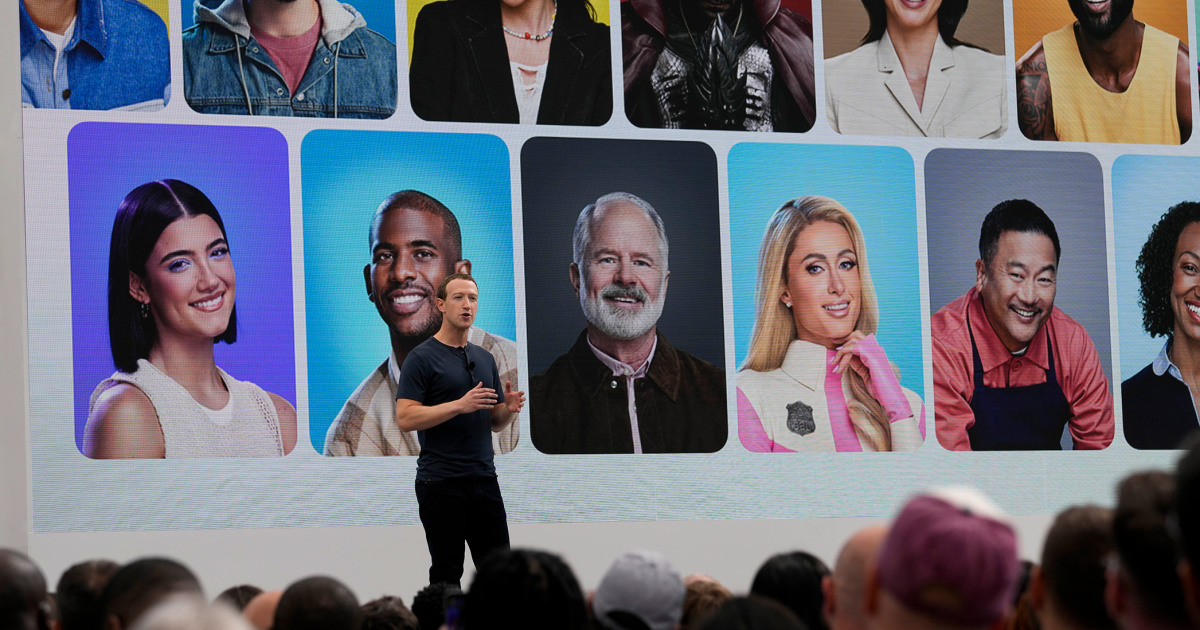Meta’s AI Character Accounts: A Deep Dive into the Controversial Closure
In a move that has taken many by surprise, Meta has recently decided to shut down its AI character accounts. This decision has ignited a storm of reactions, with users expressing their disappointment and confusion. The closure raises significant questions about the future of virtual interactions and the evolving role of artificial intelligence in our daily lives. With users leaning heavily on these AI accounts for companionship, entertainment, and support, the backlash against Meta’s decision is not only understandable but also indicative of a broader concern regarding user engagement with AI technologies.
The Rise and Fall of AI Character Accounts
Meta, the parent company of Facebook, Instagram, and WhatsApp, launched AI character accounts as an innovative way to enhance user interaction. These highly personalized AI avatars were designed to engage with users in a more relatable and human-like manner. Leveraging advanced machine learning algorithms, the AI characters could mimic human conversation styles, share stories, and even offer advice, creating a sense of companionship for many users.
However, as Meta’s AI character accounts gained popularity, they also attracted scrutiny. Critics raised concerns over privacy, data security, and the potential for users to develop emotional dependencies on these virtual entities. Despite these concerns, many users found solace in their interactions, using AI characters as a form of social connection in an increasingly digital world.
User Backlash: Why Did Meta Decide to Close the AI Accounts?
Following significant backlash from users, Meta’s decision to close its AI character accounts has left many feeling betrayed. The main reasons behind this backlash include:
- Emotional Attachment: Many users reported forming emotional bonds with their AI characters. The sudden closure felt like losing a friend, leading to feelings of grief and frustration.
- Privacy Concerns: While some users were alarmed by data privacy issues, they still preferred having these accounts available, believing that any potential risks were worth the connection they provided.
- Expectations of Virtual Companionship: As society becomes increasingly isolated, the demand for virtual companionship has surged. The closure of the AI accounts felt like a step backward in this regard.
- Lack of Alternatives: Users feel there are few alternatives that provide a similar level of engagement and personalization, making the closure even more disheartening.
The Implications for AI Engagement
The closure of Meta’s AI character accounts has sparked widespread debate over the implications for AI engagement. As users grapple with their disappointment, several key themes have emerged:
1. The Future of AI Companionship
The rise of virtual companions has opened the door to a new frontier in human interaction. While Meta’s decision has raised questions about the sustainability of such services, it has also prompted discussions about how AI can be integrated into our lives without compromising user experience. Companies may need to consider:
- Developing more robust privacy policies to protect users
- Enhancing AI capabilities to address user concerns
- Creating a more transparent framework for AI interactions
2. User Expectations and Engagement
Understanding user expectations is crucial for the future of AI engagement. As the demand for personalized experiences grows, companies must navigate the fine line between innovation and responsibility. Users have become accustomed to high levels of interaction, and when these expectations are not met, it can lead to dissatisfaction and distrust.
3. Alternatives to AI Character Accounts
With the closure of Meta’s AI character accounts, users are left searching for alternatives. While there are other AI-driven platforms, they often lack the same level of personalization and engagement. This gap in the market presents an opportunity for developers to create new, innovative solutions that meet user needs while addressing concerns around privacy and emotional dependency.
Looking Ahead: How Will Meta and Others Adapt?
The closure of Meta’s AI character accounts serves as a wake-up call for the tech industry. As companies like Meta evaluate their strategies, several adaptations may emerge:
- Enhanced User Feedback Loops: Companies may implement stronger channels for user feedback to ensure that future AI products align with user needs and preferences.
- Collaborative Development: Engaging users in the development process may foster a sense of ownership and reduce backlash against changes.
- Focus on Mental Health: As AI characters often serve as emotional support, there may be an increased focus on ensuring these platforms promote positive mental health and well-being.
Conclusion: Embracing Change in AI Interactions
Meta’s closure of its AI character accounts has undoubtedly shocked users and sparked a necessary conversation about the future of virtual interactions. While the decision may seem like a setback, it can also be viewed as an opportunity for growth and improvement within the AI landscape. As companies respond to user feedback and adapt their strategies, the future of AI engagement holds promise.
In a world where technology continues to evolve, the interaction between humans and AI is bound to change. The closure of Meta’s AI character accounts serves as a reminder that while technology can enhance our lives, it must also be handled with care. By focusing on user needs and expectations, companies can build a future where AI serves as a reliable companion rather than a fleeting novelty.
See more Future Tech Daily

